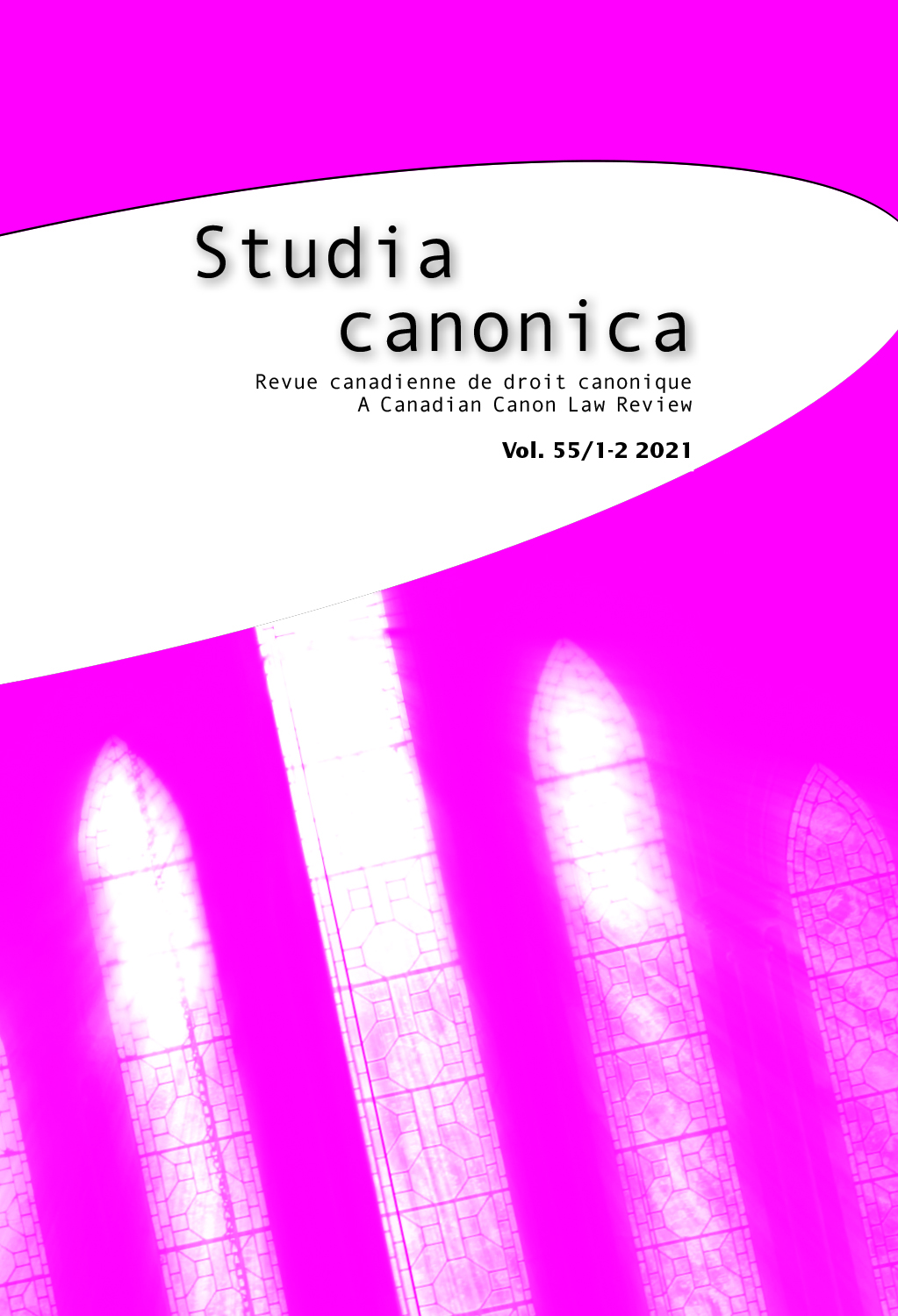 previous article in this issue previous article in this issue | next article in this issue  |

Preview first page |
Document Details : Title: Accountability and Co-Responsibility in the Government of the Church Subtitle: The Example of the Dominicans Author(s): RADCLIFFE, Timothy Journal: Studia Canonica Volume: 56 Issue: 2 Date: 2022 Pages: 587-604 DOI: 10.2143/STC.56.2.3291549 Abstract : St. Dominic left his Order a spirituality embedded in a communitarian form of government, which animates the fraternal life and mission of the brethren. It has enabled the Order to remain one in its search for truth. Government is founded on dialogue in chapter, requiring patient listening and imaginative sympathy for those with whom one disagrees. The role of leadership is shown in care for the conversations, which sustain brotherhood and form us as preachers, engaged in conversation with the world. This dialogical form of government can be helpful as the Church ponders on how it responds to Pope Francis’ invitation to embark on the synodal path. It is also countercultural and needs to be sustained by a shared life of prayer and friendship if it is to transcend the polarisation of contemporary society. Saint Dominique a laissé à son Ordre une spiritualité inscrite dans une forme communautaire de gouvernement, qui anime la vie fraternelle et la mission des frères. Elle a permis à l’Ordre de rester uni dans sa recherche de la vérité. Le gouvernement est fondé sur le dialogue en chapitre, ce qui exige une écoute patiente et une sympathie imaginative pour ceux avec qui on est en désaccord. Le rôle du leadership se manifeste par le soin apporté aux conversations, qui soutiennent la fraternité et nous forment en tant que prédicateurs, engagés dans une conversation avec le monde. Cette forme dialogique de gouvernement peut être utile alors que l’Église réfléchit à la manière de répondre à l’invitation du pape François à s’engager sur la voie synodale. Elle est également contre-culturelle et doit être soutenue par une vie partagée de prière et d’amitié si elle veut transcender la polarisation de la société contemporaine. |
|


